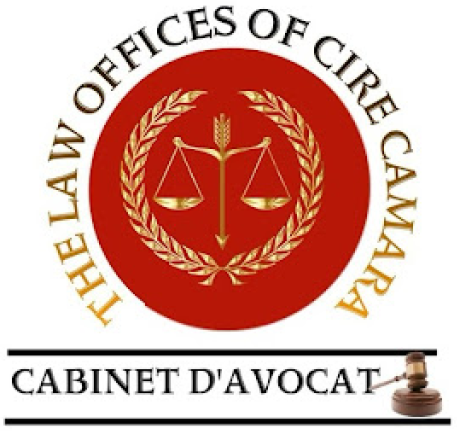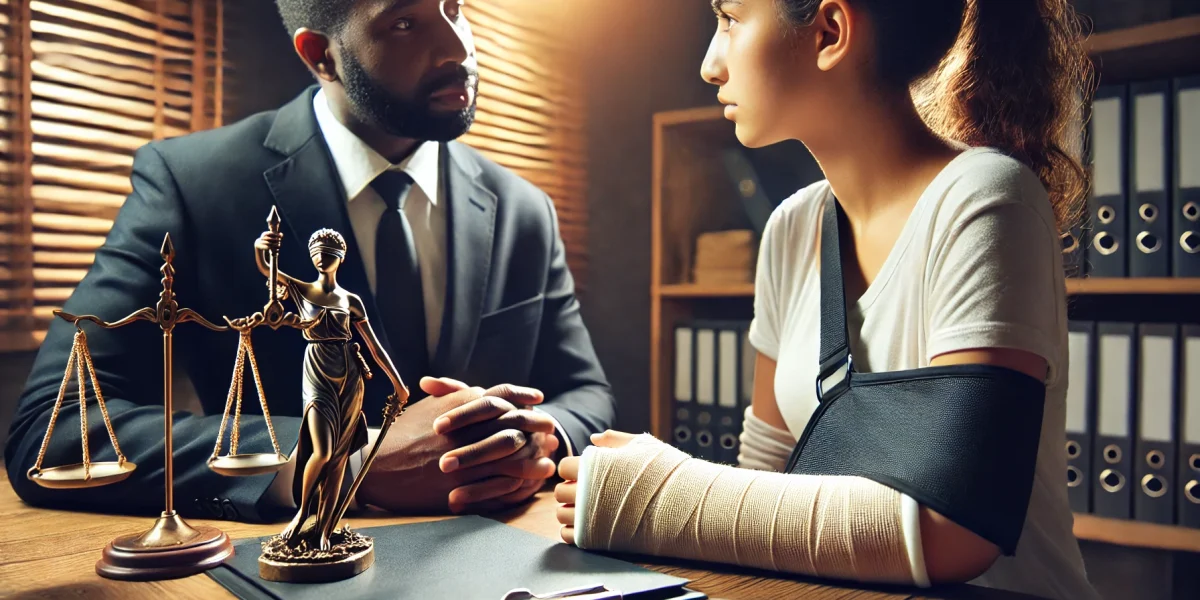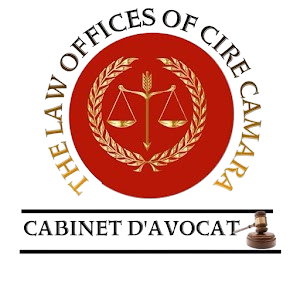Accidents and injuries can happen unexpectedly, and when they do, they can disrupt lives in profound ways. Whether it’s a car accident, a slip and fall, or an incident at work, the aftermath can be overwhelming. If you’ve been injured due to someone else’s negligence, you may have the right to seek compensation through a personal injury claim. This blog will help you understand the basics of personal injury law, the types of cases it covers, and what you can expect if you decide to pursue a claim.
What is Personal Injury Law?
Personal injury law is a branch of civil law that allows an injured person to seek compensation from the party responsible for their harm. This area of law is based on the concept of negligence, meaning that if someone’s careless or reckless actions led to your injury, they may be held legally responsible. Personal injury law aims to make you “whole” again by compensating you for damages related to your injury, including medical expenses, lost wages, and pain and suffering.
Common Types of Personal Injury Cases
There are many types of personal injury cases, but some of the most common include:
- Car Accidents
Car accidents are among the most frequent causes of personal injury claims. If another driver’s negligence (such as speeding, distracted driving, or drunk driving) caused the accident, you could be entitled to compensation for your injuries and damages. - Slip and Fall Accidents
Property owners have a legal responsibility to keep their premises safe. If you slip and fall due to unsafe conditions (like a wet floor, uneven pavement, or poor lighting) on someone else’s property, the owner may be liable for your injuries. - Workplace Injuries
Injuries that occur at work can lead to personal injury claims, especially if the employer’s negligence contributed to unsafe working conditions. While many workplace injuries are handled through workers’ compensation, there are situations where a personal injury claim may be appropriate. - Medical Malpractice
Medical professionals have a duty to provide competent care to their patients. If a doctor or healthcare provider’s negligence results in injury or harm, the patient may have grounds for a medical malpractice claim. - Product Liability
When products are unsafe, they can cause serious injuries. If you’ve been harmed by a defective product (such as a faulty appliance, medication, or vehicle part), you may be able to file a product liability claim against the manufacturer or seller. - Wrongful Death
When a person’s death is caused by someone else’s negligence or misconduct, the family may file a wrongful death claim to seek compensation for their loss. This type of claim covers damages such as funeral expenses, loss of companionship, and financial support.
Steps to Take if You’ve Been Injured
If you’ve been injured and believe someone else may be at fault, there are a few important steps to take:
- Seek Medical Attention
Your health and well-being come first. Even if your injuries seem minor, it’s crucial to seek medical attention immediately. Some injuries may not show symptoms right away, and a medical professional can assess your condition fully. Additionally, medical records will serve as important evidence if you decide to pursue a personal injury claim. - Document Everything
Keep detailed records of the incident, including photos of the scene, your injuries, and any relevant conditions that contributed to the accident (e.g., wet floors, broken equipment, etc.). Also, keep track of all medical bills, prescriptions, and any communications related to the accident. - Report the Incident
If the injury occurred in a public place or at work, report it to the property owner or your employer. Filing an official report creates a record of the incident and can serve as additional evidence. - Consult a Personal Injury Lawyer
Navigating a personal injury claim can be complex, especially when dealing with insurance companies and legal procedures. Consulting a personal injury attorney can help you understand your rights, build a strong case, and ensure you get the compensation you deserve.
How Compensation Works in Personal Injury Cases
In a personal injury case, compensation is meant to cover the damages you suffered as a result of the accident. These damages fall into two main categories:
- Economic Damages: These cover your financial losses, including medical expenses, lost wages, rehabilitation costs, and any out-of-pocket expenses related to the injury.
- Non-Economic Damages: These cover non-financial losses, such as pain and suffering, emotional distress, and loss of enjoyment of life. Non-economic damages can be more challenging to quantify, but they are an essential part of personal injury compensation.
In some cases, a court may award punitive damages if the defendant’s conduct was especially reckless or intentional. Punitive damages are meant to punish the wrongdoer and deter similar behavior in the future.
Working with a Personal Injury Attorney
A personal injury attorney can help you understand the full scope of your rights and guide you through the legal process. They can handle negotiations with insurance companies, gather necessary evidence, and represent you in court if needed. A skilled attorney will work to maximize your compensation and ensure that you’re treated fairly throughout the process.
Here’s what you can expect when working with a personal injury lawyer:
- Case Evaluation: The attorney will review the details of your case, assess the strength of your claim, and discuss potential outcomes.
- Investigation: Your attorney will gather evidence to support your claim, including witness statements, medical records, police reports, and expert testimony if needed.
- Negotiation: Many personal injury cases are resolved through negotiation with the at-fault party’s insurance company. Your attorney will negotiate on your behalf to reach a fair settlement.
- Litigation: If a fair settlement cannot be reached, your attorney may advise taking the case to court, where they will present your case to a judge or jury.
Why Pursue a Personal Injury Claim?
Filing a personal injury claim is not just about receiving compensation; it’s also about holding the responsible party accountable for their actions. By pursuing a claim, you’re taking a stand against negligence and helping to prevent similar incidents from happening to others. Additionally, a successful claim can provide the financial support you need to recover and rebuild your life after an accident.
Final Thoughts
Personal injury law exists to protect individuals who have been harmed due to the negligence or misconduct of others. If you’ve suffered an injury, you don’t have to face the consequences alone. At The Law Office of Cire Camara, we are dedicated to helping you navigate the personal injury claims process and ensuring that you receive the compensation you deserve. Contact us today to discuss your case and take the first step towards justice and recovery.






